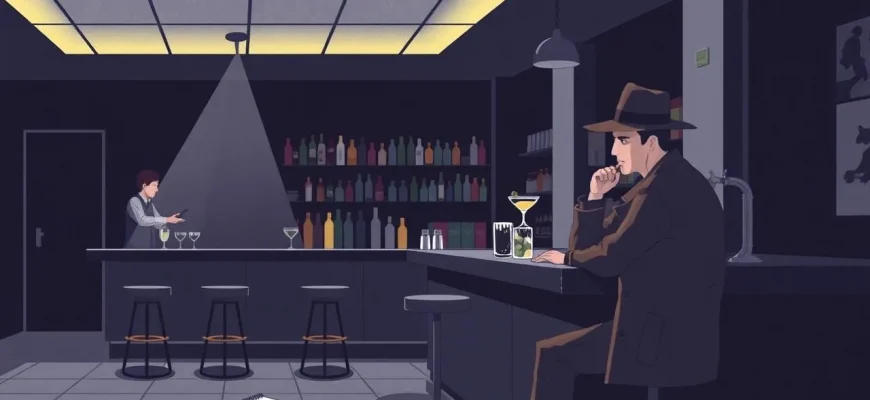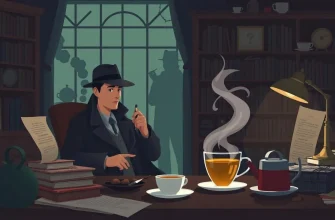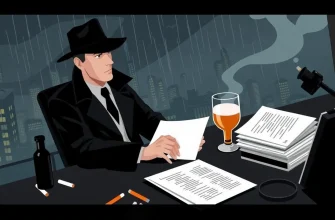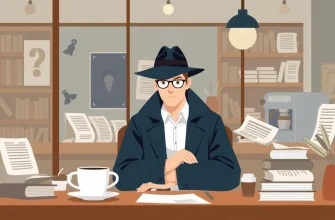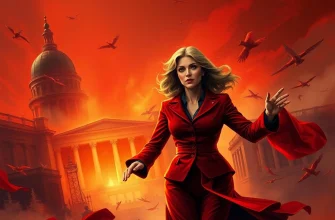There's something uniquely captivating about a bar setting in a detective story. The dim lighting, the clinking of glasses, and the murmur of secrets shared over the counter create an atmosphere ripe for intrigue. This curated list of 10 films not only showcases the art of mixology but also delves into the world of crime, mystery, and suspense, all through the eyes of bartenders. Whether they're solving crimes, witnessing them, or just mixing drinks, these films offer a unique perspective on the detective genre, making them a must-watch for fans of both cocktails and crime.

The Thin Man (1934)
Description: Nick Charles, a retired detective, and his wife Nora, solve a murder mystery while enjoying their time at various bars and parties. The bar scenes are central to the film's charm and humor.
Fact: This film spawned a series of sequels due to its popularity. The character of Nick Charles was inspired by real-life detective Dashiell Hammett.
 Watch Now
Watch Now 
The Maltese Falcon (1941)
Description: Sam Spade, played by Humphrey Bogart, often meets with clients and suspects in bars, where the atmosphere adds to the film's noir feel.
Fact: This film was John Huston's directorial debut and is considered one of the greatest detective films ever made. It was the third adaptation of Hammett's novel.
 Watch Now
Watch Now 
The Long Goodbye (1973)
Description: In this neo-noir adaptation of Raymond Chandler's novel, private eye Philip Marlowe, played by Elliott Gould, frequents a bar where he often finds himself entangled in mysteries. The film's bar scenes are pivotal to the plot, showcasing the bartender's role in the unfolding drama.
Fact: The film was directed by Robert Altman, who was known for his unconventional approach to storytelling. The character of Marlowe was significantly different from previous portrayals, making it a unique entry in the detective genre.
 Watch Now
Watch Now 
The Last Seduction (1994)
Description: While not directly about a bartender, the film features a bar where the protagonist, Bridget Gregory, played by Linda Fiorentino, uses her charm to manipulate others. The bar setting is crucial for her schemes.
Fact: The film was initially released on cable TV due to its explicit content, which was quite bold for its time. It's often praised for Fiorentino's performance.
 Watch Now
Watch Now 
The Big Lebowski (1998)
Description: Although not a traditional detective film, Jeff Bridges' character, The Dude, often finds himself in a bar, where he meets various characters involved in the film's convoluted plot. The bartender serves as a witness to The Dude's adventures.
Fact: The film has become a cult classic, with its own annual festival, Lebowski Fest. The character of The Dude has inspired a philosophy called "Dudeism."
 Watch Now
Watch Now 
The Man Who Wasn't There (2001)
Description: In this Coen Brothers' film, Ed Crane, a barber, gets involved in a blackmail scheme that leads him to frequent a bar where he meets various characters pivotal to the plot.
Fact: The film was shot in black and white, paying homage to classic film noir. Billy Bob Thornton's performance was widely acclaimed.
 Watch Now
Watch Now 
Brick (2005)
Description: This neo-noir mystery set in a high school features a teenage detective, Brendan Frye, who often uses a local diner as his base of operations, which functions similarly to a bar in classic noir films.
Fact: The film was Rian Johnson's directorial debut, showcasing his talent for intricate storytelling at a young age. It was shot in just 20 days.
 Watch Now
Watch Now 
The Ice Harvest (2005)
Description: Set on Christmas Eve, this dark comedy follows a mob lawyer and his partner as they attempt to steal money from their boss. The local strip club's bartender, played by Oliver Platt, becomes an unexpected ally in their misadventures.
Fact: The film was adapted from a novel by Scott Phillips and features a memorable performance by John Cusack. It was intended to be a more light-hearted take on the noir genre.
 Watch Now
Watch Now 
The Lady from Shanghai (1947)
Description: While not directly about a bartender, the film features numerous bar scenes where the protagonist, Michael O'Hara, played by Orson Welles, interacts with the enigmatic Elsa Bannister, leading to a web of deceit and murder.
Fact: The film is famous for its climactic hall of mirrors scene. Orson Welles both directed and starred in this noir classic.
 Watch Now
Watch Now 
The Glass Key (1942)
Description: This film noir features a political fixer, Ed Beaumont, who often finds himself in bars, where he gathers information and pieces together the puzzle of a murder.
Fact: The film was based on a novel by Dashiell Hammett and was remade in 1935 with a different cast. It's known for its complex plot and moral ambiguity.
 30 Days Free
30 Days Free 
